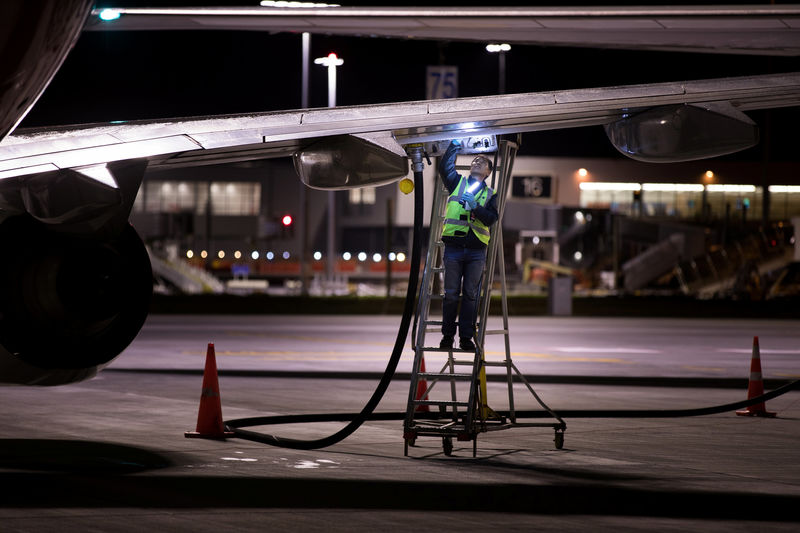MOSCOW (Reuters) - Central Asian demand for jet fuel is soaring as the region has become a key air traffic hub, taking over from sanctions-hit Moscow and as it handles an influx of Russians fleeing military service.
Demand jumped after Russia and the West closed their air space to each other's aircraft after Moscow sent its troops into Ukraine on Feb. 24.
It was further boosted after President Vladimir Putin declared a "partial mobilisation" on Sept. 21 and Russians fled the country in huge numbers, with more than 200,000 leaving for Kazakhstan alone.
Industrial data seen by Reuters showed supplies of jet fuel from Russia to Central Asia rose in January-September to 385,590 tonnes from 194,444 tonnes in the same period in 2021.
Central Asia, along with Turkey and the United Arab Emirates, has become an alternative route for Russians trying to get to Europe, in the absence of direct flights from Russia to the EU. The region's airports have also increased Russian freight turnover and boosted servicing and fuelling of Russian aircraft.
"They (Russians) started to fly more from Russia to Central Asia, transit has also risen, while kerosene demand has sharply jumped," a fuel trader said.
The sanctions have also stripped Russia of its role as a transit hub for flights between Asia and Europe, and Turkey and Central Asia are now filling that gap.
A spokesman for Kyrgyzstan's civil aviation agency said the numbers of flights to Turkey and United Arab Emirates had increased.
According to the industry data, jet fuel supplies from Russia, a major producer of fuel, to Kyrgyzstan rose to a record high of 140,000 tonnes between Jan. 1 and Oct. 23.
Deliveries of Russian jet fuel to Kazakhstan rose to 138,200 tonnes in the first nine months, from 62,500 tonnes in the year-earlier period.
In September, when Putin announced the first military mobilisation since World War Two, demand for jet fuel in Kazakhstan rose by 55% from the same month in 2021.
